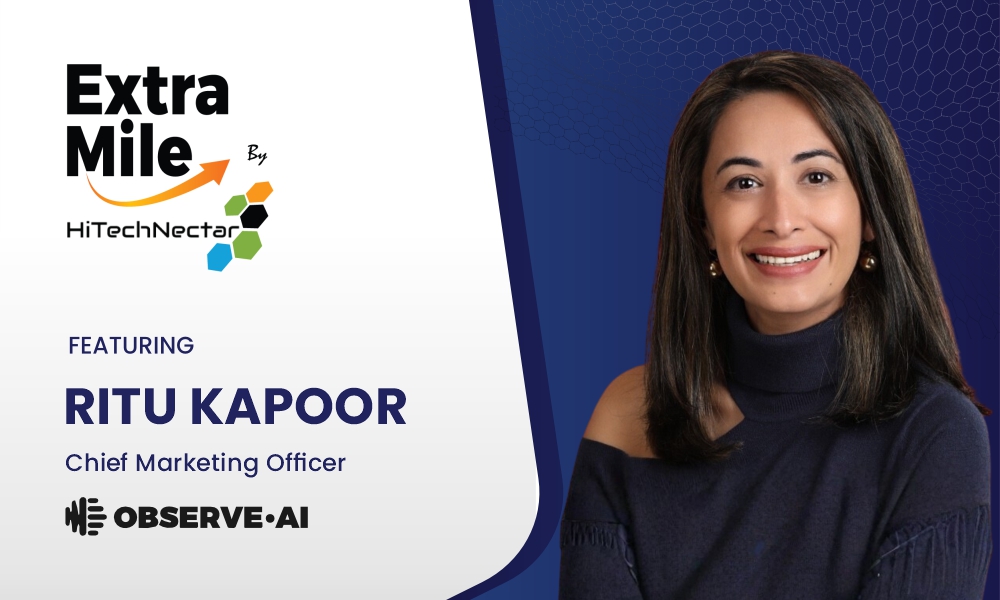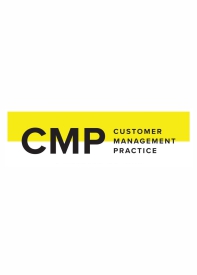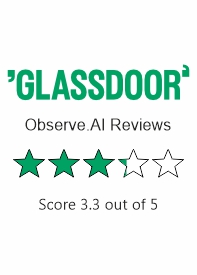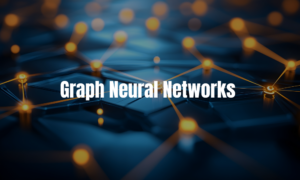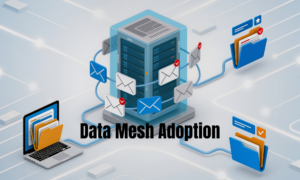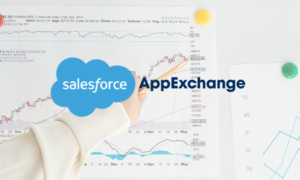Host: Hello everyone, welcome back to another episode of ExtraMile by HiTechNectar, an interview series with thought leaders and experts shaping the future of technology and business.
I’m your host Rittika and we are here to discuss the major tech trends, marketing practices, tech strategies, and more. In this episode, we are accompanied with Ritu Kapoor, the Chief Marketing Officer of Observe.AI, a firm redefining customer service with agentic AI.
Observe.AI has been empowering businesses with automation, round-the-clock customer services and enhanced customer loyalty. Ritu, as a marketing visionary, is transforming Observe.AI’s brand and product marketing alongside go-to-market for its agentic AI platform. Let’s explore her journey, Observe.AI’s conversation, intelligence and automation solution, the role of AI in marketing and more.
Welcome Ritu, hope you’re doing well today.
Ritu: Yes, thank you so much for having me.
Host: Yeah, so you are a marketing genius with over two decades of contribution to the industry. How has your journey been so far and what key learnings have you had along the way?
Ritu: Marketing, I think for me, started about say about 12 years ago. Before that, I was in engineering and then product. What I feel like in the last three years, what we’ve seen as marketers has been tremendous.
I think since actually maybe even five years since COVID, the only way that you can stand out is online. I remember during COVID, of course, things were shut down. So, there was this mass movement towards online webinars, towards online events, towards digital presence.
And it’s just so hard to stand out when there is so much noise. And now with the whole ChatGPT, LLM, Magenta AI, again, everybody’s message looks the same. It’s very hard to stand out.
For me, these past five or so years have been such a learning in terms of kind of going back to the basics in marketing. We’d veered very far away from, hey, what really matters to the consumer to what kind of ad can I run? And does this ad, then what is my conversion funnel?
And we’d gone down many different paths. And now what’s going on is almost having us reimagine and rethink about what truly matters to the customer, because it’s the only thing that can help you stand out. That human presence, that the ability to connect with customers is what’s needed, right?
Host: Yeah, that was an impressive journey, I guess. Moving ahead, tell us about your responsibilities in Observe.AI as the CMO of the firm. And how do you align marketing strategies with the company’s overall business goals?
Ritu: So, for me, I run all marketing. And I participate along with my sales counterparts and go to market. From a marketing perspective, we help with brand. So, to make sure that if you are my ICP, my ideal customer, you know of my brand.
And I’m one of the top three brands that you would look at if you are in the market to buy. Product marketing, again, is a big part of this to try and figure out once people know our brand, people need to know what we do. And in the best way possible, and we show up with our best foot forward.
And that’s where product marketing comes in. So, I run that piece as well. And then, of course, our demand engine, which is the crux of making sure that the brand and the message reach the right audience at the right time.
And we continuously create a buzz in the market about our products. Those three work together to make sure that we are front and center. And from a business perspective, I think our goal really is to establish and to sort of cement our presence in AI agents for the customer service buyer and to be one of the top three they choose all the time.
Host: Yeah, your approach is truly purpose-driven. Next up, why is it important to solve real problems instead of aiming only to sell, especially from the perspective of marketing? How does marketing become challenging if a product fails to meet the client’s expectations?
Ritu: So, it’s like campaigns, right? You think about an ad and on the ad, I put in something like, hey, you know, the best tasting wafer in the world, throw this out there. And then we go to the website, you see a picture of a car and they’re selling cars.
So, there’s a complete disconnect. The customer came in to buy a wafer, and we send them to a website that’s selling cars. You got the wrong ICP on your website.
It was almost a bait and switch. The customer, the trust is broken, right? Why did I click on this ad?
This is not what I wanted. So, making sure that we are able to deliver on the promises we make in marketing is a big one. It may not be as different as wafers and cars, but even when we say something, we have to, you can’t be too forward leaning, basically.
You can’t say that, you know, all my products are X and scalability and security. When you haven’t even started writing a line of code, there’s always a little bit of forward, but you have to be able to deliver on the promises you keep. That’s the only way you can get that customer trust.
Host: Yeah. Marketing surely becomes easier when a product or service meets the client’s expectations. Moving further,
What is the importance of conversation intelligence, and automation in modern-day businesses? How does it help in improving customer experiences?
Ritu: I think it’s the biggest part, right? So today we are the leader in agentic AI for customer service. We provide voice AI solutions.
We provide chat AI solutions. We provide AI co-pilots to help agents be their best selves. The advantage of also having a conversation intelligence solution is that we understand all the conversations that happen in the contact center, whether that’s human or AI.
So that means I can tell you which calls you can automate, which calls you need to augment, and which calls need to stay manual because they are fairly complex. So that advantage of being able to figure out how to automate your contact center comes from conversation intelligence. And the other piece is there’s all of this really rich data that sits in conversations.
Imagine the number of times you call the contact center or a customer service group and tell them about your problems. Tell them about the things that you want or complain about pricing or talk about this bug in the system. All of that stays within the contact center.
Now, you can’t have people manually look through millions of calls. So, what conversation intelligence does is it takes all that insights from these conversations and really provides that back to the business. Hey, that product that you just launched, not working.
Or the pricing is just too high. People are complaining. Or there’s this new bug that we’ve introduced in the system.
So, all of that in real time, if you’re able to give back to the business, imagine how good the products would be. Our customers just benefit so much from hearing that voice of customer directly from products that it’s become a very sticky solution for them.
Host: Yeah, that’s amazing. Next up, as a marketing expert, how do you think AI has been beneficial for marketers in areas like customer segmentation, content creation, and campaign optimization?
Ritu: Yeah, so those are the three that you would really focus on, right? I think the biggest problem in marketing today isn’t the lack of data. It’s the overload of data.
There’s all of this intent data, firmographic data, behavioral signals. There’s so many things out there. How do you now pick the signal within the noise?
So that’s one way we’re helping because you can’t, just like in conversation intelligence, you can’t listen to every conversation. You can’t go deep into every little thing. We’re looking for tools, AI tools that can really get those signals.
A second piece is personalization. How do you personalize each thing to each person? Now, traditionally in marketing, the more segmented and more personalized you get, the more expensive it is.
But with some of these AI tools, you can actually go one-on-one personalization to an extent without costs going crazy. So, I think being able to do personalization and kind of be a more personalized org for your customer without costs going crazy is another big one. And the third one is just plain pipeline impact.
How can I figure out and use the data that I currently have to better my campaigns, to predict what’s going to happen? Similar to what people used to do for bottom funnel because that data was less, but moving that more into top of funnel.
Host: AI’s potential is truly remarkable, even in marketing, but if implemented smartly in a smart way. Moving ahead,
Observe.AI introduced AI agents for voice of customer intelligence in June 2025. How are these agents simplifying accessibility and utilization of voice of customer in enterprises?
Ritu: So, here’s the thing. We can do a lot with reporting, right? You pull reports, you figure out very specific ways that you can look at these reports, you can customize reports. You can ask, in fact, your vendors to pull reports for you.
But after a while, you want very specific things and reaching out to vendors, pulling reports may not give you the answers you’re looking for, because you can’t have a custom report for everything. So, what voice of customer did for us, our latest launch, is just changed the whole model to an NLP model, which means I can ask, why are my customers churning in Texas? Or what are people complaining about in California?
Or for my consumers age X to Y, what is the biggest challenge? I can pretty much ask any question I want in the language that I’m most comfortable in, and this thing will give me an answer. And not just an answer, it’ll tell me why it’s saying that.
It’ll link sources, it will link data, and it’ll give me the best possible answer and a way to make sure I can verify this answer as well. So, for us, that whole change from static reporting into more active asking questions in the language we’re most comfortable in is the biggest advantage. And what that does is reports are great if you’re able to know how to read them, and some of these are complex.
So, it democratizes the data, which means you and I can go out and just ask a question because we know what answer we’re looking for, we know what question we want to ask, and it’s easier to do that than look for a report.
Host: Voice of customer can truly offer enterprises a strategic approach to grow. So, approaching further,
What is the significance of compliance and data privacy in AI-powered transcription? And how does Observe.AI prioritize compliance in this regard and assist in mitigating data privacy risks?
Ritu: We are sometimes giving very private information. You provide your social security number, you provide your date of birth. So, imagine all of that shows up in a transcription. And that is hard.
People are reading it, this thing is available. So, what our AI does is intelligently block out anything that’s PII, anything that’s personal information, anything that can identify the user. So, the transcription will not have all your PII data.
But there is still… The way Observe works is imagine you call into your contact center, and they’re asking PII information from you, your date of birth, your address, your social security number. It happens often so that they can authenticate you.
But imagine all of that now shows up in a transcript. So that shouldn’t show up in a transcript. So, Observe’s platform will very intelligently remove all of this data from a transcript.
So, it’s never related to you and never identifiable back to the user and cannot get stolen. So that’s a big piece for us. And also if you think about it from an AI agent perspective, being able to stay compliant with disclosures, being able to stay compliant with authentication.
We spend a lot of time making sure that there are hard gates for this. You want the conversation to be fluid. You want the conversation to be human-like.
But you can’t miss the authentication step. You can’t miss the disclosure step. So, to be able to really focus on some hard gates for the most important compliance steps but still have fluid conversations across the rest of it is really why we stand up.
Host: Yeah, it’s amazing to know how Observe.AI is prioritizing data privacy while offering cutting-edge AI-powered transcription. Lastly, but most importantly,
Marketing practices are changing every day with brands finding new ways to intersect, interact, and retain their customers. Which strategies do you think will be beneficial for brands in the long run?
Ritu: So, in the long run, really, that voice of customer and understanding what the customer needs is going to be really important. Trying to make sure that brands are able to reach out to the customer based on their intent and based on what we believe is necessary for that customer. And a lot of times, all of that data comes from your contact center, from your customer service, because these are customers that have called in before.
So, if you are able to match their intent to what you’re selling, that’s a big deal. Being able to upsell as needed, being able to look at signals and really focus on that customer with a personalized message is what we need.
Host: Yeah, that was amazing. Thank you, Ritu, for joining us and sharing your takeaways on AI agents, privacy factors, and the future of marketing. It was surely an informative session. Thank you.
Ritu: Sounds good. Thank you.
Host: And to our viewers, thank you for accompanying us in this episode of ExtraMile by HiTechNectar. See you in another session with our next guest soon. Until then, stay tuned.
Explore Our Other Insightful Interviews:


